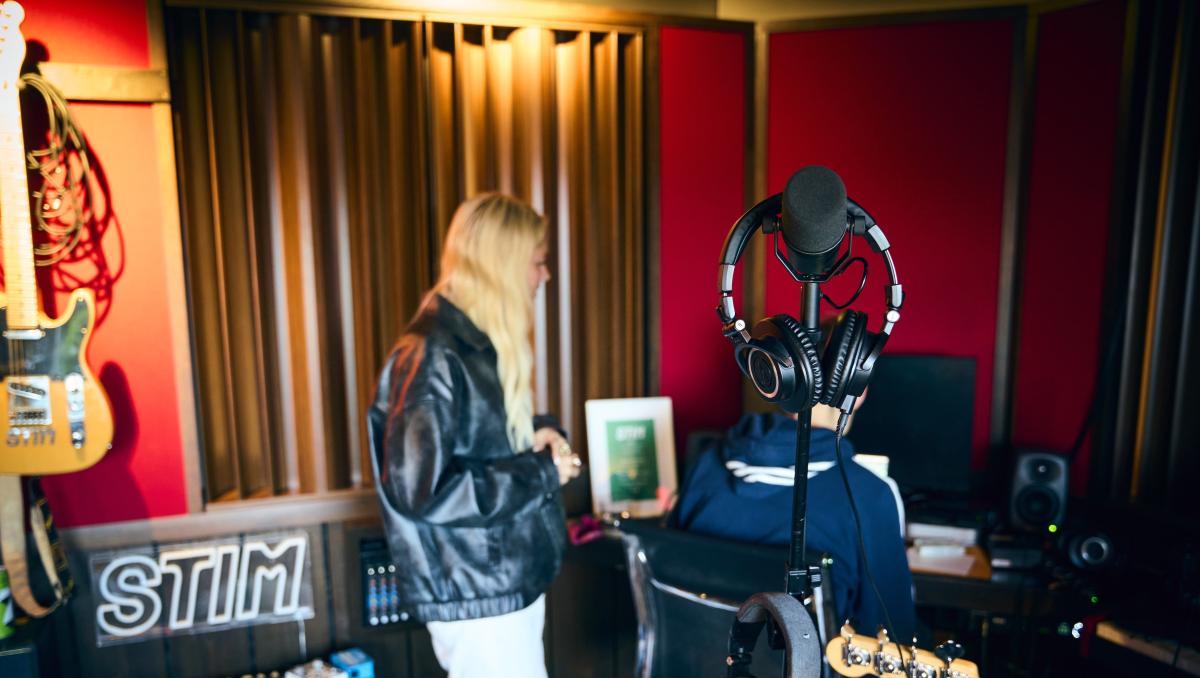STIM launches world’s first collective AI music licence

The world’s first licence between a music rights society and an AI company has been signed in Sweden. Swedish music rights society STIM is now setting the terms for how music creators can be compensated in the age of AI. Representing the world’s highest density of songwriters, the Swedish music rights society has often moved before others, playing a catalytic role in shaping global standards.
AI is projected to cannibalise up to 24% of music creators’ revenues by 2028, CISAC predicts. This looming shortfall poses one of the greatest financial and cultural tests for creators and the organisations that champion their rights. The Swedes respond as they always do: embracing disruption head-on. A new framework allows AI companies to train their systems on copyrighted music lawfully, with royalties flowing back to the original songwriters. Compensation flows both through model training and the downstream consumption of AI outputs.
“We are establishing a scalable, democratic model for the industry. With the world’s first collective AI licence, we show that it is possible to embrace disruption without undermining human creativity. This is not just a commercial initiative but a blueprint for how rights and innovation policies can align, delivering fair compensation for creators and legal certainty for AI firms,” said Lina Heyman, Acting CEO of STIM. The announcement is a systemic step, unlike private deals, from a rights society of more than 100,000 songwriters, or one percent of Sweden’s population.
Central to the licence is the mandatory use of neutral, third-party attribution technology. In partnership with preferred attribution provider Sureel, each AI output can be traced back to the human-created works that influenced it. This makes revenues auditable in real time and addresses one of the greatest trust gaps in AI music: the lack of transparency over what data is used and how creators are compensated.
The first company to operate under the new licence will be Songfox, a Stockholm-based startup that enables fans and creators to legally produce covers and AI-generated compositions. By combining STIM’s collective authority with Songfox’s product innovation and Sureel’s attribution system, Sweden is piloting a model that could once again redraw global music revenue streams. By 2028, generative AI outputs in music could approach $17 billion annually, CISAC projects—a sizable share of a global music market Goldman Sachs valued at $105 billion in 2024.
The licence is structured as an open framework, available to any AI company that meets STIM’s criteria, with the aim of embedding fair licensing practices across the sector.
“History shows that Sweden’s music economy has thrived by engaging with new ideas early, before they are validated by the market. Our AI licence continues that tradition, establishing a framework built to last—embedding attribution, transparency and fair compensation into the future infrastructure of the music economy,” said Simon Gozzi, STIM’s Head of Business Development & Industry Insight, and the organisation’s board representative to Export Music Sweden.
By launching its AI licence with two startups and a deliberately limited repertoire, STIM is stress-testing its framework in a controlled setting—a laboratory for the next phase of the music economy. The aim is to establish a market-based model that secures fair compensation and equal terms of competition while laying the foundations for long-term standards. It is the latest example of how Sweden leverages its small scale and high songwriter density to set global precedents in music rights. This time, the stakes are higher than ever—and the pace faster.
“For more than a century, new technologies have tested the structures of music and rights. Each time, collective solutions have carried creators through. AI will be no exception. Behind every model lies human works whose value must be respected. By embedding the AI Act’s core principles—transparency, traceability and fair pay—into practice, we protect creators and show that for AI firms, compliance must be a competitive edge,” says Lina Heyman, whose organisation represents the only EU country that is a net exporter of music.
Read more about Stim's AI-license
About Stim
STIM, the Swedish music rights society, is a non-profit collective management organisation representing over 100,000 songwriters, composers, and music publishers. No matter when, where, or how, STIM ensures that music creators get paid when their music is played. Recognised for its leadership in music rights technology, STIM has long pioneered international industry standards. With the world’s highest population density of registered songwriters and unrivalled access to music data, STIM offers trusted expertise and industry insight. By safeguarding creators’ rights and driving innovation, STIM secures the long-term future of music creation and strengthens Sweden’s global position as a cultural and creative leader. Founded in 1923, STIM launched the world’s first collective AI music licence in 2025.
Lisa Boström
Press & PR Manager
+46(0)76 892 16 72
lisa.bostrom@stim.se
